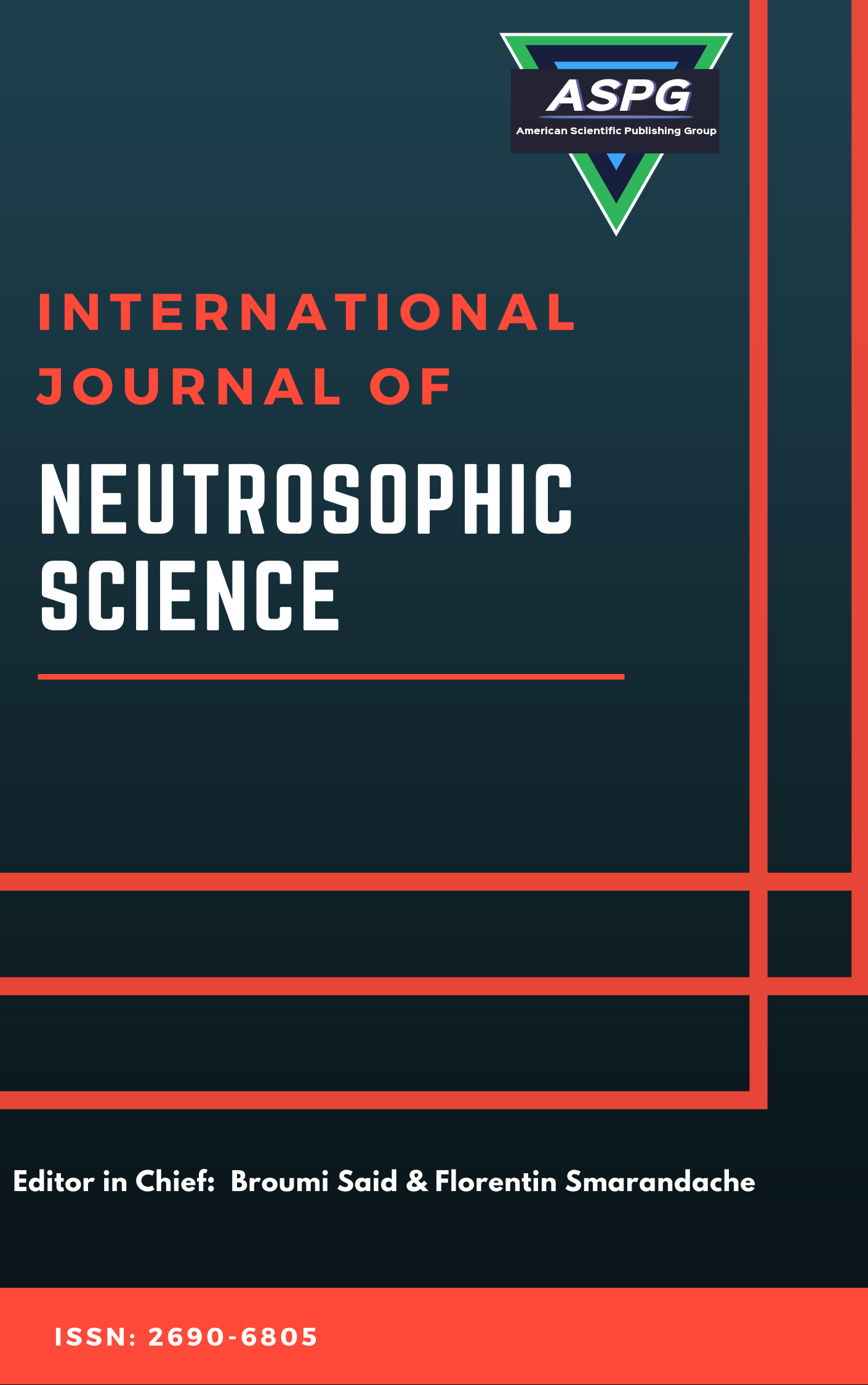

Volume 6 , Issue 2 , PP: 106-112, 2020 | Cite this article as | XML | Html | PDF | Full Length Article
Mohamed Bisher Zeina 1 *
In this paper, we generalize the classical Erlang service queueing model, which has determined and crisp parameters to neutrosophic Erlang service queueing model which is more accurate because it opens the ability to deal with imprecise and incomplete knowledge of parameters. We have used the neutrosophic statistical interval method introduced by F. Smarandache to describe the parameters of the Erlang service queueing model and to find the neutrosophic performance measures.
Erlang Service Queues , Neutrosophic Logic , Performance Measures , Neutrosophic Statistical Numbers.
,
[1] F Shortle J.; M Thompson J., Gross D., M Harris C., “Fundamentals of Queueing Theory”, 5th ed., Wiley: United States of America, 2018.
[2] Nick T. Thomopoulos, “Fundamentals of Queuing Systems”, 1st ed.; Springer: United States of America, 2012.
[3] Smarandache. F., “A Unifying Field in Logics: Neutrosophic Logic. Neutrosophy, Neutrosophic Set, Neutrosophic Probability”, American Research Press, Rehoboth, NM, 1999.
[4] Smarandache. F., “Neutrosophic set a generalization of the intuitionistic fuzzy sets”, Inter. J. Pure Appl. Math., 24, pp.287 – 297, 2005.
[5] Smarandache. F, “Introduction to Neutrosophic Measure, Integral, Probability”, Sitech Education publisher, 2015.
[6] Smarandache, F, “Neutrosophy and Neutrosophic Logic, First International Conference on Neutrosophy, Neutrosophic Logic, Set, Probability, and Statistics”, University of New Mexico, Gallup, NM 87301, USA, 2002.
[7] Salama. A.A, Smarandache. F, and Kroumov. V, “Neutrosophic Crisp Sets & Neutrosophic Crisp Topological Spaces”, Neutrosophic Sets and Systems, Vol. 2, pp. 25-30, 2014.
[8] Salama.A.A, Smarandache. F, “Neutrosophic Crisp Set Theory”, Education Publishing, Columbus, 2015.
[9] Patro.S.K, Smarandache. F., “The Neutrosophic Statistical Distribution, More Problems, More Solutions”, Neutrosophic Sets and Systems, Vol. 12, pp. 73-79, 2016.
[10] Smarandache. F, “Neutrosophical statistics”, Sitech & Education publishing, 2014.
[11] Smarandache, F. & Pramanik, S., “ New trends in neutrosophic theory and applications”, Vol.2. Brussels: Pons Editions, 2018.
[12] Smarandache, F. & Pramanik, S., “New trends in neutrosophic theory and applications”, Brussels: Pons Editions, 2016
[13] Hatip.A., “The Special Neutrosophic Funcions”, International Journal of Neutrosophic Science, Vol. 4, Issue 2, pp. 104-116, 2020.
[14] Alhabib, R., A. A. Salama, “Using Moving Averages To Pave The Neutrosophic Time Series”, International Journal of Neutrosophic Science, Vol. 3, Issue 1, pp. 14-20 , 2020.
[15] Oliveira.A., Oliveira.M.N.C, “Classical Logic as a subclass of Neutrosophic Logic”, International Journal of Neutrosophic Science, Vol. 6, , Issue 1, pp. 22-31 , 2020.
[16] Salama.A.A, Smarandache. F, “Neutrosophic Crisp Set Theory”, Education Publishing, Columbus, 2015.
[17]Alhabib.R, Ranna.M.M, Farah. H, Salama.A.A., “Some Neutrosophic Probability Distributions, Neutrosophic Sets and Systems, Vol. 22, pp. 30-38, 2018